Home Remedies For Muscle Weakness: 12 Proven Natural Remedies
Strengthen your muscles with the best remedies made from affordable and natural ingredients.

Image: Shutterstock
All of us experience muscle weakness sometime in our lives, be it after a particularly tough workout or due to illness. When your complete effort does not result in normal muscle movements, it can lead to muscle weakness. The good news is that there are a couple of home remedies for muscle weakness you can try to alleviate the symptoms. While muscle weakness may be the result of strenuous physical activity, it can also be a symptom of an underlying medical condition. In that case, consulting your doctor is the best choice. In this article, we look at some of the causes of muscle weakness and a few natural remedies you can try at home.

In This Article
What Is Muscle Weakness?
Muscle weakness is characterized by the muscles’ lack the strength to carry out daily activities. It can result from injuries, infections, nerve disorders, aging, lack of physical activity, or underlying medical conditions like muscular dystrophy or autoimmune diseases.
One may experience difficulty in lifting objects or standing up from a sitting position. It may affect a single muscle or specific muscle groups, resulting in decreased coordination and mobility, muscle cramps, and fatigue. Physical and occupational therapy, dietary modifications, medication, exercise, and surgical intervention may help treat muscle weakness.
Now that we have discussed what muscle weakness is, let us find out about the different factors that cause this condition in the next section.
Key Takeaways
- Muscle weakness can be caused due to stroke, chronic fatigue syndrome, or autoimmune conditions.
- Some effective home remedies to treat muscle pain include massaging the affected area with essential oils, black seed oil and resting.
- Consuming food rich in proteins, vitamins, and minerals, like gooseberries, bananas, milk, almonds, and eggs helps in strengthening muscles.
- The best food for muscle weakness include nuts, fresh fruits, vegetables, whole grains and cold water fish.
What Causes Muscle Weakness?
Muscle weakness could be a result of various health conditions, such as:
- Chronic fatigue syndrome
- Muscular dystrophy
- Hypotonia or lack of muscle tone
- An autoimmune muscular disorder called Myasthenia gravis
- Nerve damage called peripheral neuropathy
- Sharp or burning pain in one or more nerves, also referred to as neuralgia
- Chronic muscle inflammation called polymyositis
- Stroke
- Polio
- Hypothyroidism
- Elevated blood calcium or hypercalcemia
- Rheumatic fever
- West Nile virusi A mosquito-transmitted disease that can result in muscle weakness, convulsions, vision loss, paralysis, brain damage, or even death.
- Botulismi A rare but severe condition that damages the body's nerves, leading to respiratory problems, muscle paralysis, and even death.
Prolonged periods of bed rest or immobility can also cause muscle weakness. Some other diseases known to result in weak muscles are Grave’s diseasei An immune system disorder that triggers the production of an excessive amount of thyroid hormones (hyperthyroidism). , Guillain-Barre syndromei A rare disorder where the immune system attacks the peripheral nerves found outside the brain and spinal cord. , and Lou Gehrig’s diseasei A neurological condition, also known as amyotrophic lateral sclerosis (ALS), which impairs physical function and weakens muscles. .
Muscle weakness usually affects the muscles of your arms and legs. It can result in the following symptoms, depending on the underlying cause.
Symptoms Of Muscle Weakness
- Muscle pain
- Muscle cramps
- Atrophy
Most often, muscular weakness is a symptom of a condition that might require immediate medical attention.
Scroll down to find out when exactly you should consult your healthcare provider.
When To Seek Medical Attention
It is essential that you get emergency medical attention for a full examination if you have significant pain or other concerning signs like confusion, breathing difficulties, or loss of bladder control in addition to persistent muscle weakness.
It is always important to find the underlying cause and avail treatment for muscle weakness. Listed below are 12 natural remedies that you can try in conjunction with medical treatments for muscle weakness.
Note: Although these remedies may help ease the symptoms of mild muscle weakness, they may not entirely work for chronic muscle weakness. Hence, consult your healthcare provider for appropriate treatment, which may include physical therapy, medications, and so on.
12 Natural Remedies To Get Rid Of Muscle Weakness
1. Eggs
Using eggs is a great natural treatment for myositis. Whole eggs provide your body with the energy and nutrition required for its proper functioning. They are rich in nutrients like vitamin A, riboflavin, protein, and folic acid, all of which are great for the healthy functioning of your body and muscles (1), (2).
You Will Need
1-2 eggs
What You Have To Do
Consume one or two eggs for breakfast. Try having the egg yolk as well as it is rich in protein and various other nutrients.
How Often You Should Do This
Once daily, preferably for breakfast.
 Quick Tip
Quick Tip2. Essential Oils
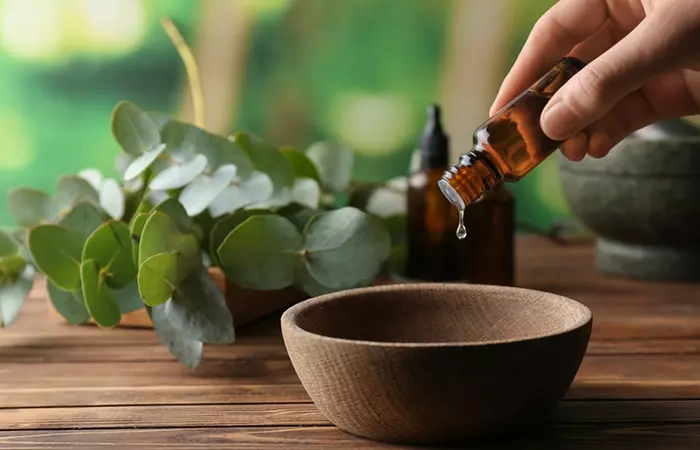
a. Eucalyptus Oil
About 70% of eucalyptus oil is made up of eucalyptol (1, 8-cineole), which gives the oil a majority of its beneficial properties. Eucalyptus oil is a natural muscle relaxer. It exhibits powerful anti-inflammatory and analgesic properties that can help in combating the pain and other symptoms associated with muscle weakness (3).
You Will Need
- 12-15 drops of eucalyptus oil
- 30 mL of any carrier oil (coconut or almond oil)
What You Have To Do
- Add 12-15 drops of eucalyptus oil to 30 mL of any carrier oil and mix well.
- Apply this blend to the affected muscles.
- Leave it on for 30 to 40 minutes, after which you can go ahead with a shower.
How Often You Should Do This
You can do this 2 times daily.
b. Rosemary Oil
Rosemary oil
is another essential oil that may help treat muscle weakness as it has analgesic and anti-inflammatory properties (4), (5). This may help combat muscle aches and spasms.
You Will Need
- 12 drops of rosemary oil
- 30 mL of any carrier oil (coconut, olive or almond oil)
What You Have To Do
- Mix 12 drops of rosemary oil with 30 mL of any carrier oil.
- Apply this mixture evenly to the affected muscles and leave it on for 30 to 40 minutes.
- Wash the mixture off.
How Often You Should Do This
You can do this once daily.
3. Apple Cider Vinegar
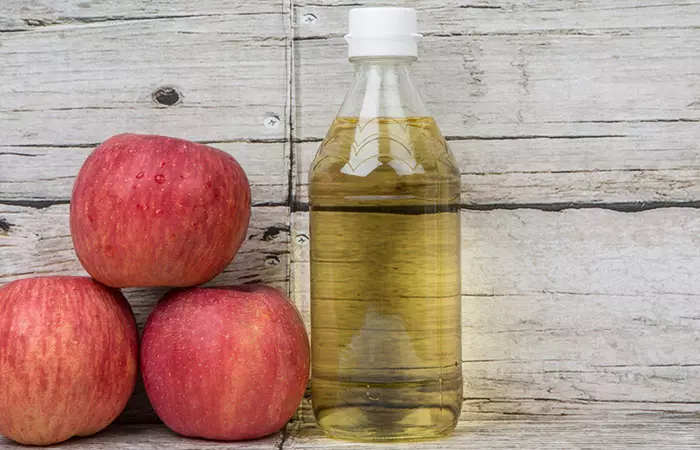
In addition to possessing anti-inflammatory properties, apple cider vinegar (ACV) is loaded with nutrients like potassium, calcium, and B vitamins. Studies show that potassium deficiency can lead to muscle weakness (6). Thus, intake of apple cider vinegar may help in strengthening the muscle, while its anti-inflammatory properties may reduce pain and inflammation.
You Will Need
- 1 tablespoon of apple cider vinegar
- 1 glass of warm water
- Honey
What You Have To Do
- Add a tablespoon of apple cider vinegar to a glass of warm water.
- Mix well and add some honey to this solution.
- Consume the mixture.
How Often You Should Do This
You can do this 1 to 2 times daily.
 Did You Know?
Did You Know?4. Milk
Milk intake has shown to improve muscle protein synthesis, and this can contribute to better muscle health (7).
You Will Need
1 glass of milk
What You Have To Do
Consume a glass of plain milk.
How Often You Should Do This
Do this 2 times every day. But in case you are allergic to dairy, avoid milk.
5. Almonds
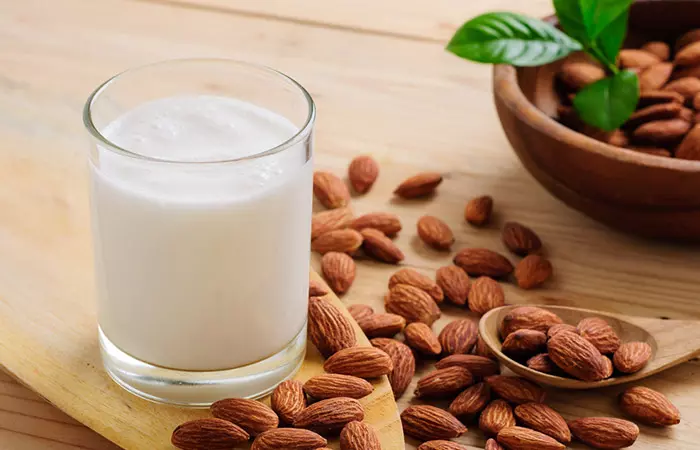
Almonds are rich sources of magnesium and vitamin E and are beneficial for your muscles and overall health. They also convert carbohydrates and proteins from foods to energy (8). This, in turn, can help in combating muscle weakness naturally
You Will Need
- 8-10 soaked almonds
- 1 cup of milk
What You Have To Do
- Soak almonds overnight and remove their skin.
- Blend the soaked almonds with a cup of milk.
- Consume the mixture.
How Often You Should Do This
Do this 1 to 2 times daily.
6. Black Seed Oil
The black seed oil has been widely used for its effectiveness in treating various health issues, including muscle weakness. It contains two compounds – thymoquinone and thymohydroquinone – which exhibit anti-inflammatory, analgesic, and healing properties (9),(10). These properties can help in treating weak and sore muscles.
You Will Need
Black seed oil (as required)
What You Have To Do
- Massage black seed oil onto the affected muscles.
- Leave it on for 30 to 60 minutes and then wash it off.
- Alternatively, you can consume a teaspoon of virgin black seed oil.
How Often You Should Do This
You can do this once daily.
7. Vitamin And Minerals
Sufficient intake of certain vitamins
and minerals through your diet can help in treating muscle weakness.
Minerals like iron, calcium, potassium, and magnesium have important roles in improving the strength and functioning of your muscles (11),(12).
Deficiencies in B vitamins and vitamin D can cause muscle weakness (13).
Hence, follow a healthy and well-balanced diet that includes all the major vitamins and minerals for combating muscle weakness.
Some foods that are rich sources of these nutrients are milk, eggs, fish, poultry, beans, whole grains, avocados, and spinach. Consult your doctor if you want to take additional supplements for any of these nutrients.
8. Indian Gooseberries
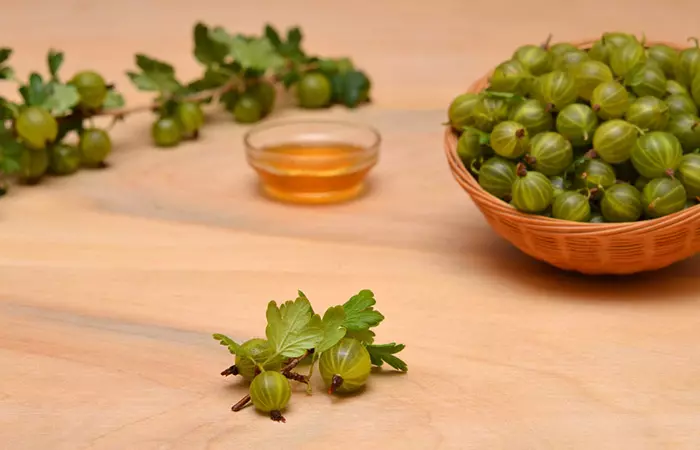
Indian gooseberries contain good amounts of calcium, iron, B vitamins, and proteins – all of which are great for treating muscle weakness. They are also natural analgesics that can help relieve the pain associated with weak muscles (14).
You Will Need
- 2-3 Indian gooseberries
- 1-2 tablespoons of water
- Honey (optional)
What You Have To Do
- Cut two to three Indian gooseberries into small pieces.
- Blend them with water and extract their juice.
- Add some honey to the gooseberry extract and consume immediately.
- You can also directly chew on gooseberries if you can handle their strong flavor.
How Often You Should Do This
Do this 1 to 2 times daily.
9. Coffee
The major component of coffee is caffeine. Although too much caffeine is not advised, when used in moderate amounts, it revitalizes your muscles and can help combat the symptoms of muscle weakness (15).
You Will Need
1-2 cups of freshly brewed coffee
What You Have To Do
Consume one to two cups of freshly brewed milk/black coffee.
How Often You Should Do This
Do this every day.
Note: Moderation is the key. Do not overconsume coffee as it can lead to other disorders like insomnia, restlessness, and stomach upset.
10. Bananas
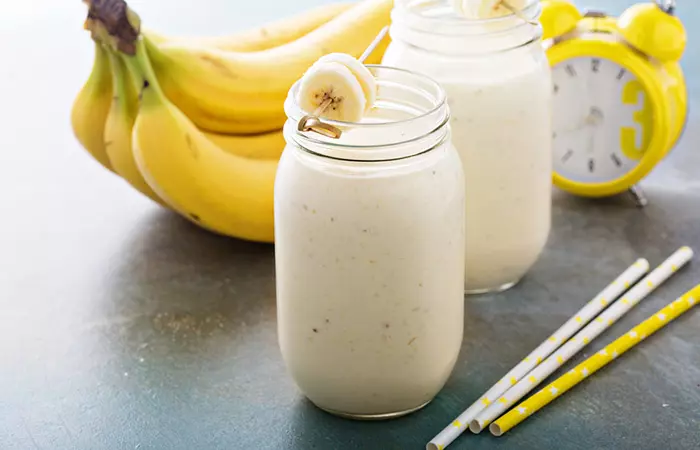
Bananas provide instant energy to your body and are hence one of the best remedies for muscle weakness. They are rich in potassium and carbohydrates like sucrose and glucose (16). As we are aware, potassium deficiency can restrict blood flow to muscles and cause muscle aches. They also improve metabolic recovery and decrease post-exercise inflammation (17).
You Will Need
1 banana
What You Have To Do
- Add bananas to your daily diet.
- You can also blend a banana with milk and consume it.
How Often You Should Do This
You can consume a banana 2 to 3 times daily.
11. Yogurt
Yogurt contains essential nutrients like calcium, potassium, and B vitamins that can provide your body and muscles with energy (18), (19). It also contains natural sugars that provide additional support in producing energy for your weak muscles. However, this alone won’t fetch you positive results. Physical training with a proper diet that includes carbohydrates will help you maintain healthy muscles.
You Will Need
1 bowl of plain yogurt
What You Have To Do
Consume a bowl of plain yogurt.
How Often You Should Do This
You can do this at least once daily.
12. Potatoes
The potassium-rich potato extract can help in enhancing your muscle movements, thereby helping you combat muscle weakness and its symptoms naturally (20).
You Will Need
1-2 potatoes
What You Have To Do
- Soak one or two potatoes overnight.
- Remove the skin in the morning and blend them.
- You can also add some water to the potatoes to extract their juice easily.
- Strain the juice and add some honey to it (optional).
- Drink the juice.
How Often You Should Do This
You can do this once daily.
While these remedies work in your favour and against muscle weakness, you can make a few lifestyle changes to enhance their effectiveness. They are discussed below.
Prevention Tips
- Do mild exercises regularly.
- Take a walk daily.
- Sleep well.
- Keep your stress levels under control. Avail counselling if necessary.
- Practice meditation and yoga.
- Get a body massage done every once in a while to help your muscles recover faster.
- Follow a balanced and nutritious diet.
- Massages help relax muscles and alleviate tension, improving overall muscle health and flexibility.
- Anti-inflammatory herbs, such as ginger or turmeric can improve blood circulation in the affected muscles.
Following a healthy and balanced diet is very important to speed up the recovery of weakened muscles. Here’s a list of foods that can improve muscle weakness.
Best Diet For Muscle Weakness
Include the following foods in your daily diet:
- Nuts
Nuts contain unsaturated fats and nutrients like magnesium. These fats and nutrients supply your muscles with the energy required for its normal functioning (21). Hazelnuts, almonds, cashews, and walnuts are rich in magnesium.
- Fruits And Vegetables
Including fresh fruits and vegetables in your daily diet helps strengthen your muscles and protects you from infections and diseases that can hinder the functioning of your muscles.
- Whole Grains
Whole grains contain complex carbohydrates and are thus easier to digest than simple carbohydrates. These carbohydrates provide your body with glucose, which is the main source of energy for your muscles and body.
Caution: Do not consume whole grains if you are allergic to gluten.
- Cold-Water Fish
Cold-water fish are rich sources of protein, magnesium, and omega-3 fatty acids. These nutrients are essential for proper growth, repair, and development of your muscles (22). Cold salmon, tuna, sardines, and mackerel are particularly high in omega-3 fatty acids (23).
Muscles are an integral part of our body and are needed to carry out basic day-to-day activities. Hence, it is wise to avail treatment at the earliest if you have muscle weakness.
Infographic: Important Foods To Have To Combat Muscle Weakness
Eating a nutritious, balanced diet is crucial if you want your weakened muscles to recuperate quickly. All it takes is the right balance of foods in the right recommended proportions, and you are on your way to a smoother fitness journey.
Check out the infographic below to learn more about the key natural ingredients you should include in your diet to combat muscle weakness. Illustration: StyleCraze Design Team
Muscle pain, cramps, and atrophy are indicators of muscle weakness resulting from varying causes. Most common among them include prolonged bed rest, nerve damage, chronic fatigue syndrome, hypothyroidism, neuralgia, and hypotonia. Home remedies for muscle weakness such as eggs, apple cider vinegar, black seed oil, essential oils, almonds, Indian gooseberry, and foods rich in vitamins and minerals can most often alleviate the associated symptoms. However, these may not be able to cure any underlying health concern responsible for muscle weakness. If you experience persistent muscle weakness, seek medical guidance.
Frequently Asked Questions
How long do muscles need to recover?
Muscles need 24 hours to a few days to recover from exercise or strenuous activity. However muscle weakness caused due to underlying health conditions may take longer, depending on the condition and its treatment procedures.
Can muscle weakness be cured?
Muscle weakness due to disuse and certain other conditions may be cured, whereas muscle weakness resulting from muscular dystrophy cannot be cured but only managed.
Who treats muscle disorders?
Orthopedists treat muscle disorders. They treat muscle and joint disorders and also perform surgeries if needed.
What types of stretching can help alleviate muscle weakness?
PNF stretching is one of the most effective ways to alleviate muscle weakness. It improves your range of motion and the length of the muscle. It involves both stretching and contracting.
Can heat or cold therapy help alleviate muscle weakness?
Both heat and ice therapy can help improve the muscles. Heat therapy can improve blood circulation, promote blood flow, and help relax sore muscles. Cold therapy is good to reduce inflammation.
Illustration: Home Remedies To Get Rid Of Muscle Weakness: Causes And Diet

Image: Dall·E/StyleCraze Design Team
Learn more about muscle weakness, its causes, symptoms, and treatments. Watch the video below to understand the condition better and how to manage it.
References
Articles on StyleCraze are backed by verified information from peer-reviewed and academic research papers, reputed organizations, research institutions, and medical associations to ensure accuracy and relevance. Read our editorial policy to learn more.
- Hida, Azumi et al. “Effects of egg white protein supplementation on muscle strength and serum free amino acid concentrations.” Nutrients Vol. 4,10 1504-17. 19 Oct. 2012.
https://www.ncbi.nlm.nih.gov/pmc/articles/PMC3497008/ - van Vliet, Stephan et al. “Consumption of whole eggs promotes greater stimulation of postexercise muscle protein synthesis than consumption of isonitrogenous amounts of egg whites in young men.” The American Journal of Clinical Nutrition Vol. 106,6 (2017): 1401-1412.
https://pubmed.ncbi.nlm.nih.gov/28978542/ - Silva, Jeane et al. “Analgesic and anti-inflammatory effects of essential oils of Eucalyptus.” Journal of Ethnopharmacology 89,2-3 (2003): 277-83.
https://pubmed.ncbi.nlm.nih.gov/14611892/ - Takaki, I et al. “Anti-inflammatory and antinociceptive effects of Rosmarinus officinalis L. essential oil in experimental animal models.” Journal of medicinal food 11,4 (2008): 741-6.
https://pubmed.ncbi.nlm.nih.gov/19053868/ - Raskovic, A et al. “Analgesic effects of rosemary essential oil and its interactions with codeine and paracetamol in mice.” European Review for Medical and Pharmacological Sciences 19,1 (2015): 165-72.
https://pubmed.ncbi.nlm.nih.gov/25635991/ - Kardalas, Efstratios et al. “Hypokalemia: a clinical update.” Endocrine connections 7,4 (2018): R135-R146.
https://medlineplus.gov/genetics/condition/hypokalemic-periodic-paralysis/https://www.ncbi.nlm.nih.gov/pmc/articles/PMC5881435/ - Masuki, Shizue et al. “Effects of milk product intake on thigh muscle strength and NFKB gene methylation during home-based interval walking training in older women: A randomized, Controlled Pilot Study.” PloS one 12,5 e0176757. 17 May. 2017.
https://www.ncbi.nlm.nih.gov/pmc/articles/PMC5435182/ - Yi, Muqing et al. “The effect of almond consumption on elements of endurance exercise performance in trained athletes.” Journal of the International Society of Sports Nutrition 11 18.
https://www.ncbi.nlm.nih.gov/pmc/articles/PMC4031978/ - Ahmad, Aftab et al. “A review on therapeutic potential of Nigella sativa: A miracle herb.” Asian Pacific Journal of Tropical Biomedicine 3,5 (2013): 337-52.
https://www.ncbi.nlm.nih.gov/pmc/articles/PMC3642442/ - Hajhashemi, Valiollah et al. “Black cumin seed essential oil, as a potent analgesic and antiinflammatory drug.” Phytotherapy Research : PTR 18,3 (2004): 195-9.
https://pubmed.ncbi.nlm.nih.gov/15103664/ - Abbaspour, Nazanin et al. “Review on iron and its importance for human health.” Journal of research in medical sciences : The Official Journal of Isfahan University of Medical Sciences 19,2 (2014): 164-74.
https://www.ncbi.nlm.nih.gov/pmc/articles/PMC3999603/ - Hubble, Douglas, and G.C.R. Morris. “POTASSIUM DEFICIENCY IN LIVER DISEASE: CAUSING MUSCULAR WEAKNESS AND POLYURIA.” The Lancet, Elsevier, 25 Aug. 2003.
https://www.sciencedirect.com/science/article/pii/S0140673658911954 - Rejnmark, Lars. “Effects of vitamin d on muscle function and performance: a review of evidence from randomized controlled trials.” Therapeutic Advances in Chronic Disease 2,1 (2011): 25-37.
https://www.ncbi.nlm.nih.gov/pmc/articles/PMC3513873/ - Lim, Dong Wook et al. “Analgesic Effect of Indian Gooseberry (Emblica officinalis Fruit) Extracts on Postoperative and Neuropathic Pain in Rats.” Nutrients 8,12 760.
https://www.ncbi.nlm.nih.gov/pmc/articles/PMC5188415/ - Grgic, Jozo et al. “Effects of caffeine intake on muscle strength and power: a systematic review and meta-analysis.” Journal of the International Society of Sports Nutrition vol. 15 11.
https://www.ncbi.nlm.nih.gov/pmc/articles/PMC5839013/ - Nieman, David C et al. “Bananas as an energy source during exercise: a metabolomics approach.” PloS one 7,5 (2012): e37479.
https://ncbi.nlm.nih.gov/pmc/articles/PMC3355124/ - Nieman, David C et al. “Metabolic recovery from heavy exertion following banana compared to sugar beverage or water only ingestion: A randomized, crossover trial.” PloS one 13,3 e0194843.
https://www.ncbi.nlm.nih.gov/pmc/articles/PMC5864065/ - Bridge, Aaron et al. “Greek Yogurt and 12 Weeks of Exercise Training on Strength, Muscle Thickness and Body Composition in Lean, Untrained, University-Aged Males.” Frontiers In Nutrition 6 55.
https://www.ncbi.nlm.nih.gov/pmc/articles/PMC6503736/ - Fernandez, Melissa Anne, and André Marette. “Potential Health Benefits of Combining Yogurt and Fruits Based on Their Probiotic and Prebiotic Properties.” Advances In Nutrition (Bethesda, Md.) 8,1 155S-164S.
https://www.ncbi.nlm.nih.gov/pmc/articles/PMC5227968/ - Murray, Bob, and Christine Rosenbloom. “Fundamentals of glycogen metabolism for coaches and athletes.” Nutrition Reviews 76,4 (2018): 243-259.
https://www.ncbi.nlm.nih.gov/pmc/articles/PMC6019055/ - Razzaque, Mohammed S. “Magnesium: Are We Consuming Enough?.” Nutrients 10,12 1863.
https://ncbi.nlm.nih.gov/pmc/articles/PMC6316205/ - Jeromson, Stewart et al. “Omega-3 Fatty Acids and Skeletal Muscle Health.” Marine drugs 13,11 6977-7004.
https://www.ncbi.nlm.nih.gov/pmc/articles/PMC4663562/ - Mohanty, Bimal Prasanna et al. “DHA and EPA Content and Fatty Acid Profile of 39 Food Fishes from India.” BioMed research international 2016 (2016): 4027437.
https://www.ncbi.nlm.nih.gov/pmc/articles/PMC4989070/
Read full bio of Caroline Duncan
Read full bio of Shaheen Naser
Read full bio of Arshiya Syeda
Read full bio of Dipti Sharma





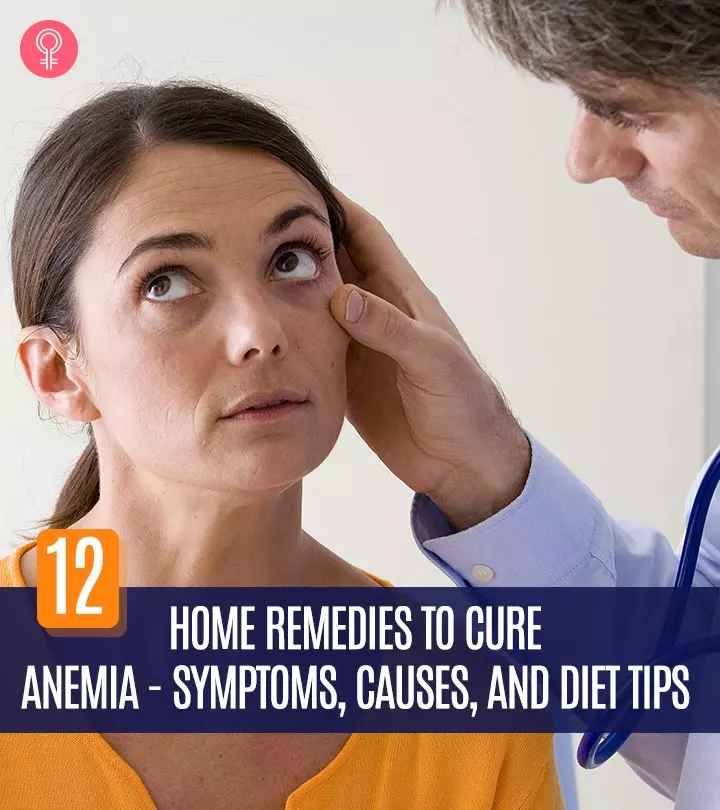


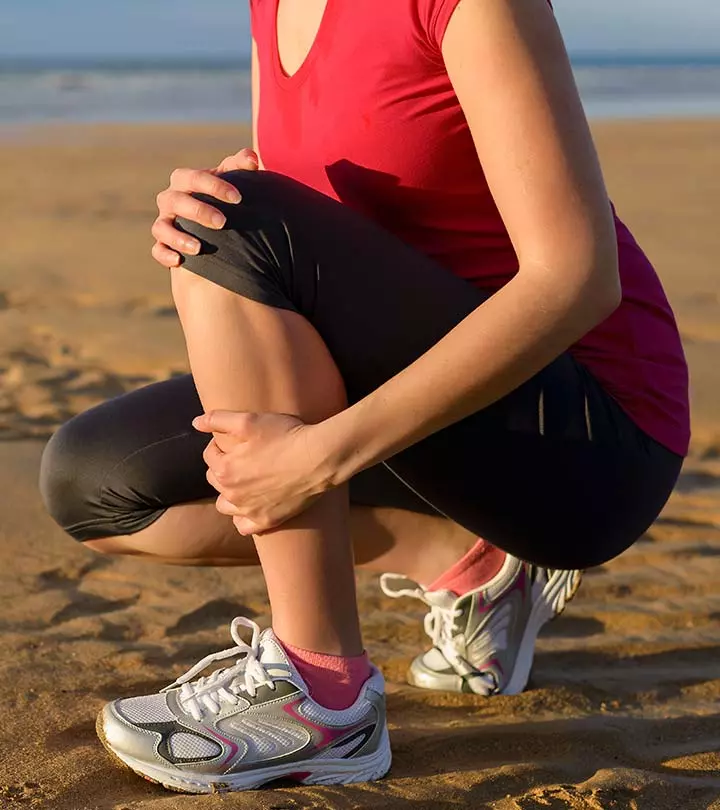

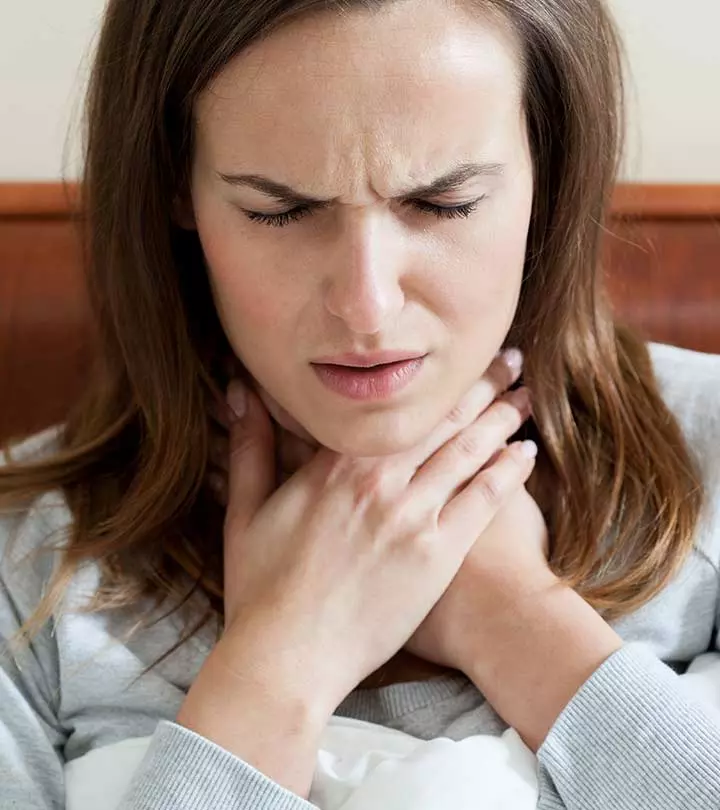








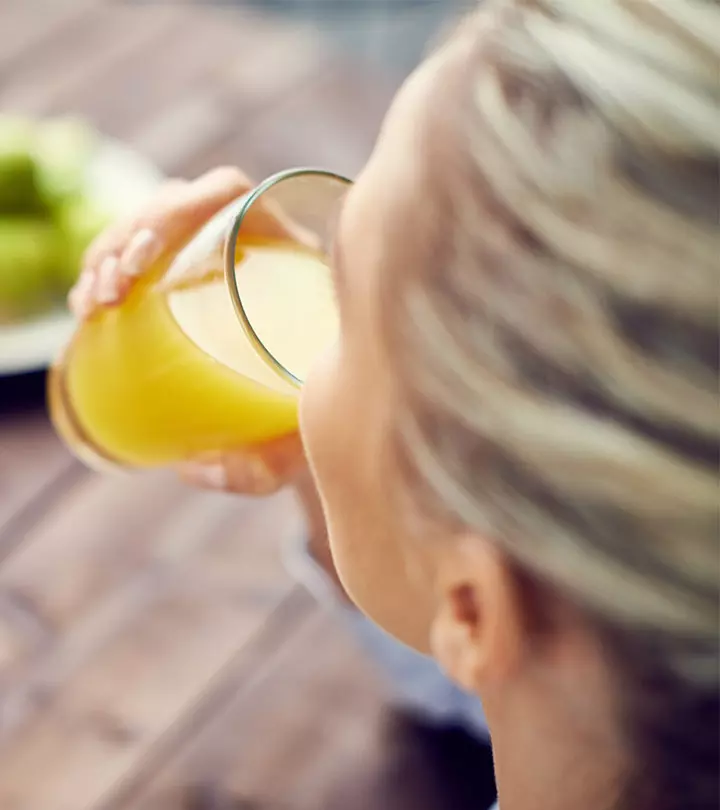
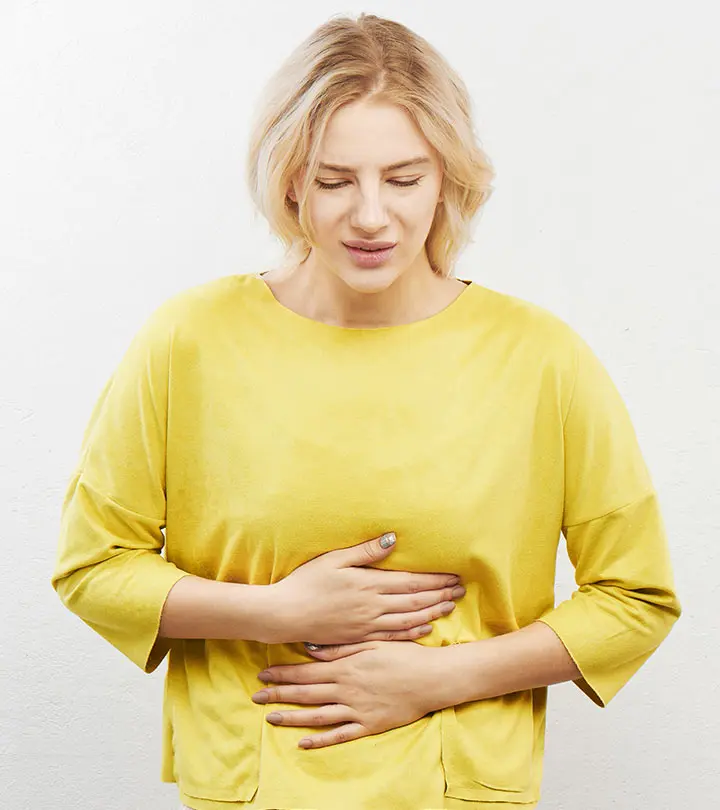





Community Experiences
Join the conversation and become a part of our empowering community! Share your stories, experiences, and insights to connect with other beauty, lifestyle, and health enthusiasts.